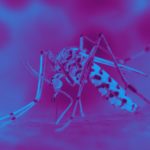Link to Pubmed [PMID] – 30433853
J Occup Environ Hyg 2018 Nov;:1-7
Extra-European studies report high rates of multi-drug resistant bacteria colonization of healthcare workers’ mobile phones in intensive care units. We aimed to assess the prevalence of bacterial colonization of healthcare workers’ mobile phones in an intensive care unit in France and the effectiveness of a sanitization product. We designed a prospective, monocentric study in a 15-bed intensive care unit within a 300-bed private hospital. Bacterial colonization was assessed on 56 healthcare workers’ mobile phones immediately before and 5 min after sanitization of the phones with bactericidal wipes. The mobile phones of 42 administrative staff acted as controls. All mobile phones in both groups were colonized. Healthcare workers’ phones had a higher number of different bacterial species per phone (2.45 ± 1.34 vs. 1.81 ± 0.74, p = 0.02). Colonization with pathogens did not differ significantly between healthcare workers’ and controls’ phones (39.3% vs. 28.6%, p = 0.37). Excluding coagulase negative Staphylococcus, Staphylococcus aureus was the most common pathogen found in both groups (19.6% and 11.9%, p = 0.41). Only one healthcare workers’ mobile phone was colonized by methicillin-resistant Staphylococcus aureus, and no other multi-drug resistant bacteria was detected. No covariate was associated with pathogen colonization. After sanitization, 8.9% of mobile phones were sterilized, and colonization with pathogenic bacteria decreased (21.4% vs. 39.3%, p = 0.04) as did the number of CFUs/mL (367 ± 404 vs. 733 ± 356, p < 0.001). Colonization of intensive care unit healthcare workers' and administrative staff's mobile phones was similar. Colonization with pathogens was frequent but colonization with multi-drug resistant bacteria was rare. Disinfecting the phones with bactericidal wipes is not completely effective. Specific sanitization protocols and recommendations regarding the management of healthcare workers' mobile phones in intensive care units should be developed. Additionally, good hand hygiene after touching mobile phones should be kept in mind to prevent cross-infections.

